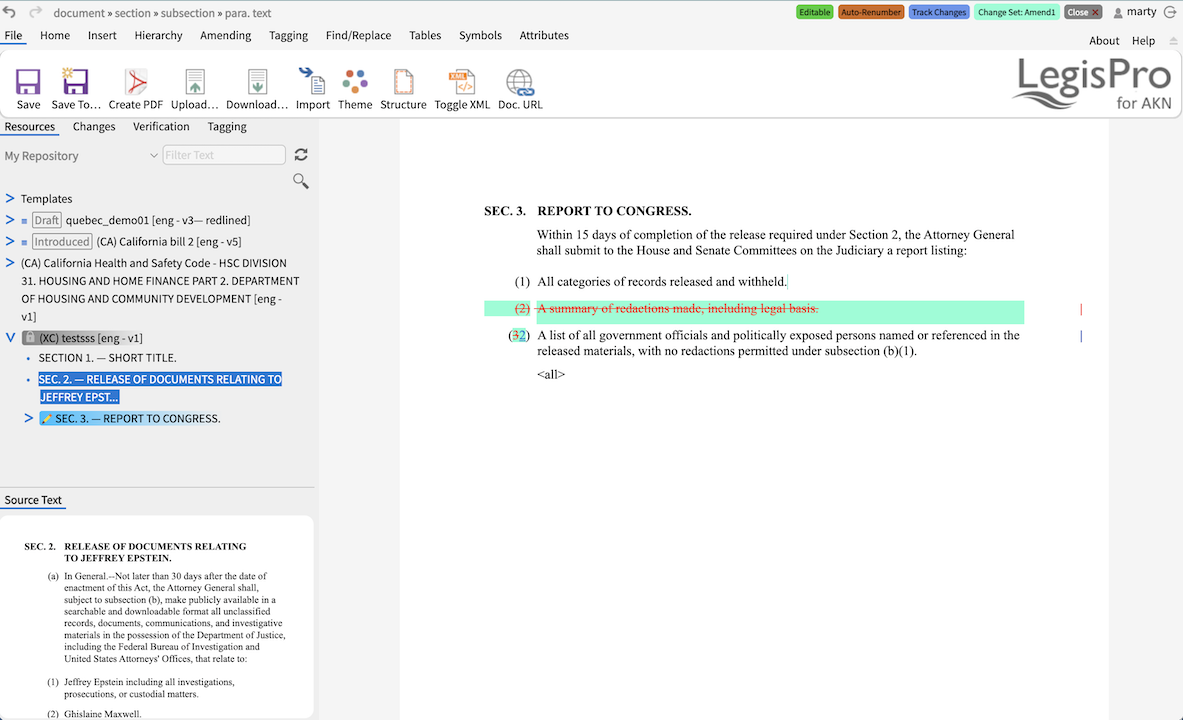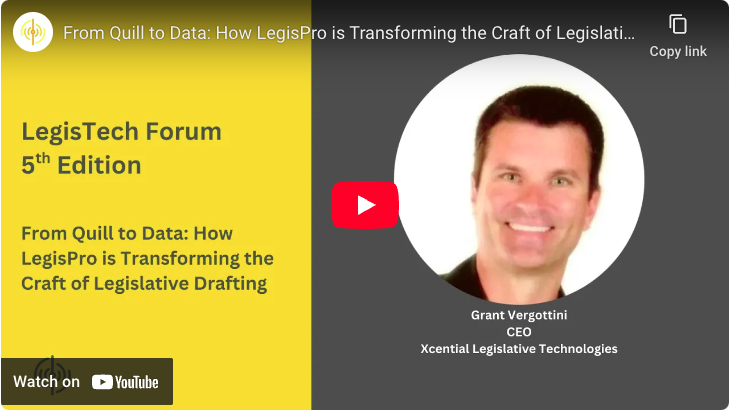Comparing Legislative Drafting Solutions
Comparing legislative drafting software solutions? This review dives into the pros and cons of LegisPro, Propylon, ArborText, and XMetaL, arguing that moving to Akoma Ntoso and native XML drafting is the only strategic path for future-proof government rule-making.
October 7, 2025


The legislative rule-making process is undergoing a critical digital transformation. Agencies stuck on legacy systems are putting economic development at stake.
This blog provides a quick overview of software solutions for modernizing drafting and publishing systems for legislation and regulation.
Couple of things before we dive in…
--> Akoma Ntoso is the future of legislative and regulatory rule-making. Xcential believes this and believes in value created by the standards.
--> Regulatory agencies and ministries are behind most parliaments in modernization, but they should catch-up. Economic development is at stake. In the below we will refer to legislation, but this also means regulation.
Drafting Requests
Someone, probably a member of the parliament, makes a request to draft legislation.
Enterprise Application - Software that is already used across the organization and can be configured to initiate and track requests. This might be Microsoft, Google, or a host of other vendors who are already providing user management and other services. The major benefits include reduced change management, established hosting and user management, and ease of building reports.
Bespoke and Homegrown Software - This is software that is purpose-built for this function, either by you or a trusted partner. The benefits are control of design. Total cost of ownership can be lower or higher, depending on your expertise. Costs may run higher if you have to build services that are required, but not directly associated with the request itself (like user privacy controls).
NovaWorks - NovaWorks is a company that provides configurable solutions for drafting requests, committee management, and other workflow items related to legislation.
Drafting Bills, Regulation, and other Instruments
LegisPro - LegisPro is an affordable, purpose-built solution for legislative drafting. LegisPro has a user-friendly and familiar interface to reduce change management obstacles. It supports Akoma Ntoso out of the box to enable component-based solutions which are future-proof. USLM is supported for drafters in the USA. Features include ease of integration, flexible deployment, automated amending instructions, version control, visual locking for large document collaboration, configurable change sets, document synthesis, user administration, and document comparisons.
ArborText - If you moved to XML drafting (good job!), then you were using ArborText or XMetal. ArborText (now by PTC) is becoming unaffordable with an increasing price for the subscription model, upgrading from older licenses, and extra charges for addons like Styler, Printing, Publishing, etc. ArborText is a solid XML editor, but not purpose-built for drafting or managing legislation and regulations. Expect aging modules with high-cost of customization and integration. No support of Akoma Ntoso comes native, so expect that to be one of your priority configurations. While ArborText was dominant in the legislative space 15 years ago, today the product is focused on technical documentation and parts catalogs.
XMetal - XMetal is another great XML editor. But like ArborText, XMetal is aging. It allows you to customize it to support Akoma Ntoso on your own, while out of the box it supports DITA and S1000D (technical documentation and S1000D projects). While the components provided are built for customization, nothing in XMetal is purpose-made for legislation.
Propylon - Propylon has been successful at providing a broad range of services for legislation and regulatory rule making. But while it covers a lot of high-level use-cases, it lacks the depth for serious legislative councils (locking, comparisons, amending instructions, etc). Propylon requires Microsoft Word for drafting with XML as an afterthought. Extensive configuration and customization to match the requirements of specific jurisdictions and ministries is questionable.
Printing and Publishing
While winding through readings, amendments, and committees, documents need to be printed in very exact formats. Publishing requires outputs that can be easily transformed as data.
LegisPro - Uses CSS templates to create exact prints that can perfectly match expectations of a jurisdiction or agency. These templates require configuration but can then be used in various ways by LegisPro and/or integrated workflow systems. Because all drafting is in Akoma Ntoso, outputs like PDFs and HTML are ready for publishing and automation.
ArborText - Requires Windchill, another PTC application, to publish finished documents. Again it is cost that has triggered IT groups to look for other solutions.
XMetal - Printing and publishing can be with customized CSS. Out of the box, XMetal is ready for DITA and S1000D publishing.
Propylon - Propylon's reliance on Microsoft Word for drafting often means the resulting XML is generated after the fact, making the final data structure less reliable or "dirty" compared to native XML drafting systems like LegisPro. This overhead can complicate the high-quality, perfectly consistent outputs required for official publishing.
Summary
For organizations prioritizing data strategy, AI readiness (LegalRuleML), and future-proof legislative services, the decision is clear: Native XML authoring with LegisPro is the most affordable and strategic path. The costs of maintaining legacy, non-semantic systems or customizing generic editors will quickly eclipse the investment in a purpose-built, standards-compliant platform.
If your organization's primary mandate is to retain a Microsoft Word-centric drafting environment and you are currently not prioritizing the transition to Akoma Ntoso/XML, Propylon is a front-runner for managing that process.
The advice from Xcential is to explore the benefits of XML and Akoma Ntoso. When it comes to regulations, XML is a must have because of Akoma Ntoso's cousin called LegalRuleML. When it comes to supporting drafters of rules, LegisPro is a must have.








